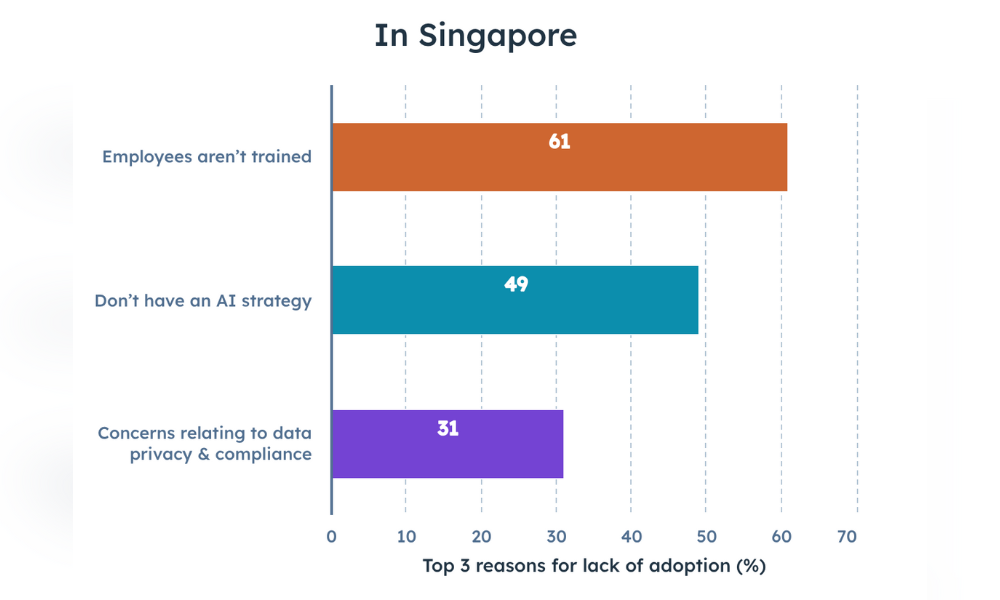
Nine in 10 employers planning to restructure workforce as AI tools become more common: survey

Three in four business leaders in Singapore are expecting their organisations to find a "Head of AI" in the next 12 months amid widespread plans to invest in AI tools, according to a new report from HubSpot.
The report, which polled 285 business leaders, revealed that 97% are planning to invest in AI tools over the next 12 months, with the average investment at around S$32,000.
In the wake of these investment plans, 90% of business leaders said they are anticipating the recruitment of more roles to support AI rollout and implementation.
This includes the hiring of a "Head of AI" role, as cited by 75% of the respondents, with the position expected to steer the organisational use of the emerging technology in the workplace.
But the recruitment of more staff won't be the only change in their organisation due to AI, according to the report, as 87% of the respondents also have plans to restructure their workforce as AI tools become more common at work.
Dan Bognar, VP & MD, JPAC at HubSpot, advised organisations to look at the AI era as an opportunity to reskill or upskill their workforce. This includes tapping into relevant initiatives, such as SkillsFuture Singapore, to meet the growing demand for AI skills.
"This is a critical step that empowers employees not only to undertake other strategic tasks, but also to effectively leverage the power of AI to drive better business outcomes," Bognar said in a statement.
The upcoming AI investment among many Singaporean business leaders comes amid a major disconnect between AI use at work.
The report found that while 51% of business leaders report using AI for their own work, only 27% have officially implemented AI or AI-enhanced tools in their organisation.
"While AI holds considerable potential to positively transform how businesses market to, sell to, and service customers, our research suggests that ongoing gaps between AI strategies and operational realities are impacting how companies use AI," Bognar said.

Source: HubSpot
To shift from an independent to company-wide use of AI, Bognar said it will require clear guidelines on AI usage, upskilling employees with AI skillsets, and integrating the emerging tech with data and tools already in place.
"Most importantly, proper measurement frameworks need to be implemented to accurately track AI's business impact," he added.
According to the report, business leaders capable of effectively tracking and measuring the impact of AI are more likely to see benefits, including: